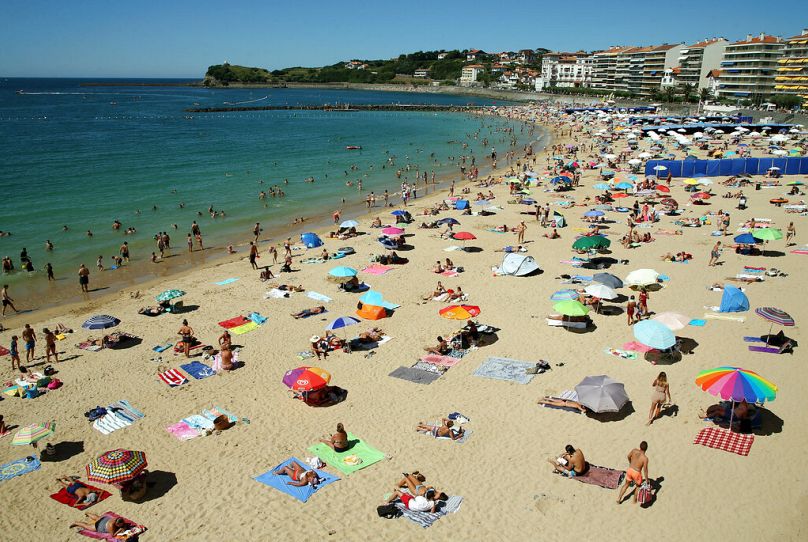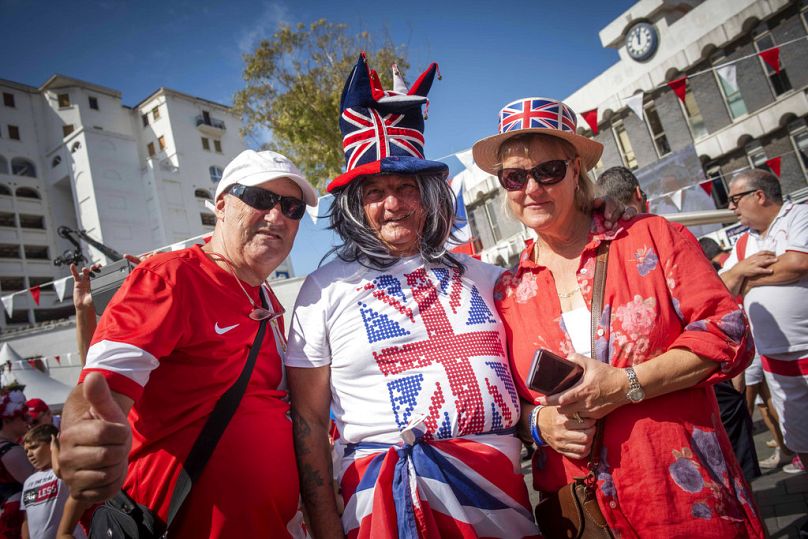British people are "living the dream" in Spain - that's "until the wheels fall off the bus," Euronews was told.
When Margot Campbell-Parton's husband died in an accident in 2006, her dream of a carefree life in Spain was shattered.
 ADVERTISEMENT
ADVERTISEMENT
 ADVERTISEMENT
ADVERTISEMENT
After police officers knocked on her door one Sunday morning with the grim news, the 65-year-old Glaswegian was left completely alone, having had to identify his body herself.
“It was just a horrible time,” she told Euronews. “No one asked me how I was. I didn't see anyone.”
Her sons soon arrived to support their mum, but more nightmarish problems befell the family.
Margot and her husband Alec had borrowed money to set up a business in Port de Sóller, Majorca, with a third person who promptly “buggered off”, leaving her lumbered with a €250,000 loan.
In the months that followed, heartbreak turned to severe depression, as she struggled to sell her house, clear the debt and process her husband's passing - all without the option of returning to Scotland as she had sold her home there.
“I was never a hard person. I was always someone who would cry very easily. But everything that happened made me really cold,” she said.
“It was a very lonely time. A very sad time.”
‘Things are much harder than at home’
Some 307,000 British citizens live in Spain as of 2022, according to figures from epdata.
A vast majority tend to be older, heading south to spend the later stages of life somewhere that is cheaper - and certainly sunnier - than Britain.
However, Dr Kelly Hall, a Reader in Social Policy at the University of Birmingham, who has researched care issues facing British migrants in Spain, says some can run into "really big problems".
She details a textbook scenario where "healthy" Brits move to Spain in their 50s or 60s to areas with high concentrations of other British people and do not learn Spanish because they either "struggle or don't need to" - despite “good intentions” at times.
"They're quite happy for some time," Dr Hall tells Euronews. "But then something happens, say a partner dying or health problem, that puts them in a very precarious position and can trigger a whole host of mental health problems, like loneliness and isolation."
Earlier in November, the British Embassy in Spain warned that many of the 72,000 Britons living on the Costa del Sol - home to the largest community of Brits in Spain - could find themselves isolated and alone.
A central issue is many British expats do not speak Spanish, meaning they can struggle to access support services when needed.
“Spain’s a big country, there are lots of organisations helping people, but people can sometimes get a bit lost," adds Neil Hesketh of Support in Spain, a non-profit website helping British expats inside the country.
Another issue he points to is that Spain’s social care system is not as big as Britain's, with Spanish families expected to provide more support for sick or elderly relatives, compared to a “more individualistic” UK.
Even in normal times, language barriers and being geographically far from friends and family can cause issues.
“People get lonely everywhere," explains Hesketh. "But obviously in Spain it's different because they aren’t in their native country. Traditional cultural reference points, like the pub, aren’t English-speaking."
“Someone’s son or daughter can’t just pop round for a cup of tea, you know.”
Part of this is down to the British. Some don't "bother to integrate,” meaning many problems can remain undetected or unaddressed, according to Hesketh.
“It can be very frustrating and perplexing for Spanish people when they find a poor English person with dementia in their garden.”
His organisation works to support British people who get into vulnerable situations in Spain, pointing them towards services and support they can access inside the country. It has around 8,000 users a month, he says.
‘Not enough thinking ahead’
For Hesketh, an important problem is that British expats can fail to plan for what he calls the “nasty things in life”.
"Everyone comes over to Spain to live a dream," he tells Euronews. "They've got some money, they buy a house in the countryside. Where people get into trouble is when they have made the move without really planning what might happen if things go wrong.
"They're living the dream until the wheels fall off the bus," he continues.
Brexit has also thrown a spanner into the works, impacting the lives of many Brits in Spain.
Dr Hall notes many of those living off "really low incomes", especially state pensions, were hit hard by the depreciation of the pound following Britain's decision to leave the European Union.
"They can't afford to go meet their friends in the restaurant or bar... as their disposable income has disappeared so has their social life," she says, highlighting cases where elderly people have ended up sleeping on the beach because they are unable to pay their rent.
Since the 2016 Brexit vote, the pound has lost 20% of its value, according to analysis by CNN.
But help is on hand.
Britain's embassy in Spain has called on experts and public authorities to assist their compatriots, though when asked by Euronews to detail exactly what it was doing it did not provide information.
"The British Embassy works to protect and promote British interests in Spain. As part of that, we provide support and advice to British people visiting or living in Spain," it said in a statement.
Consular services are "overstretched" in Spain, according to Dr Hall.
Town councils are working on innovative ways to create community and provide care to their British residents, however.
One of those is the Town Hall of Mijas which - through APEMEX (Programme of Help for Elderly Foreigners) - has developed associations connecting the elderly so they do not feel alone.
"British people who came to Spain when they were completely autonomous made the decision to live away from their families and social networks, they are a prototype of independent and free people, so when they reach old age people do not change," said Professor of Social Work and Social Services at the University of Jaén, Yolanda María de la Fuente.
"Perhaps we should apply a kind of gerontological pedagogy and make them realise that with a little support and help they could live much better and, above all, design their own life plan with a certain amount of guidance," she added.
For those considering making the move, Hesketh of Support in Spain urged Brits to “integrate as much as possible, learn the language and understand how the Spanish system can help.












